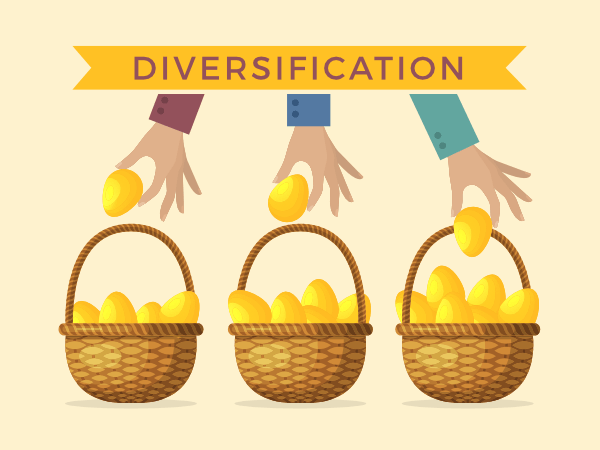Competition or Monopoly?
Monopoly is bad for business.
Henry Ford
I am sure if I asked you this question as a business owner you will say Monopoly…
If I asked the same question as a customer/consumer I am sure you would say Healthy Competition…
So, is one better than the other, or do they both have equal advantages and disadvantages?
I have had discussions with business owners, directors, investors and senior managers where a monopoly was their aspiration and here, I try and explain briefly as possible why it is not ideal for either business or consumer to be in a monopolistic situation.
Firstly, what is a Monopoly? It is the exclusive possession or control of the supply of or trade in a commodity or service. Competition can be interpreted as the activity or condition of striving to gain or win something by defeating or establishing superiority over others.
There have been some famous or maybe infamous monopolies in the past, luckily with the introduction legislation and regulation, monopolies are not such a common occurrence. The days of the Rockefellers, the Carnegies, American Tobacco, AT&T, etc. have all but gone. But there are names you will have heard of… Unilever, Monsanto, Google, Facebook, Microsoft, Oracle and even Netflix that have near monopolies in some, if not all of their business offerings.
For any business owner or business, the natural desire is to be superior amongst your peers is a fundamental requirement to achieve success but that does not mean you have to aspire to have a monopoly. The monopolistic corporation can control cost, quality, service and value with complete disregard to its customers if it wishes to do so. A monopoly means the customer only has one choice, take it or leave it, whatever the quality, value or price.
To ensure the best quality of material, offering or service… you need competition… healthy competition. Without healthy competition, businesses can inadvertently sit back on their laurels with a hint of arrogance and slowly fall into complacency and laziness.
We only need to look at the likes of IBM, Kodak, Blockbuster, Nokia in recent times where corporations have taken their eye of the ball and fallen into complacency and ultimately overlooked critical changes in the industry, competition, innovation and their customers’ needs and unfortunately seen their business change or in the worst case diminish dramatically.
First to market/start-ups/industry disruptors, being first to offer and launch a technology, service or product may provide that initial unique superiority and advantage that can build that brand, but other corporations will follow into this new space if they believe there is a market, which means that competition will naturally ensure focus on the end customer to maximise corporate revenues and maybe pay back of those investors.
More established, let’s say older corporations have probably attempted many different strategies to differentiate themselves from their competition, from aspects such as quality, quantity, timeliness, locality, availability, delivery, manual, automation, online, etc. and of course the obvious maybe more simplistic one, price.
Some corporations look to grow organically using innovative marketing and sales techniques to increase their customers and revenues, others look to acquire similar or complementary business to increase customers and revenues.
Some take the steady and consistent approach, focusing on quality, best of breed, innovation to maintain their superiority. All have the different approaches have differing levels of risk, exposure effort, investment, timeliness and financial return.
Some businesses use the highly risk ‘scorched earth’ or the ‘burnt field’ approach by lowering their prices, to make it near impossible for competition to follow in their path for long without suffering seriously from the slim or non-existent profits. Such strategies usually require some heavy investors to allow corporations to weather such initiatives.
If you cannot compete and differentiate yourself successfully from your peers, then there is always the possibility of introducing the cartel… where manufactures and corporations with the ulterior motive of keeping prices high/controlled, look to manipulate availability, distribution and keep new comers from competing or entering the market.
This behaviour does not assist the consumer having similar impact of the monopoly where the consumer is disadvantaged and the companies have no emphasis to focus on the consumer but to only maintain the status quo.The oil industry, diamond trade and even olive oil have all been, and in some cases still are linked to cartels where the supply/availability and price of crude oil, diamonds and olive oil has been overseen and managed and controlled to the advantage of the cartel.
That is why I believe having healthy competition is a good thing, no corporation should be afraid of competition. Competition keeps every business on their toes, it creates a healthy competitive environment within the industry and within the business itself, it can instil pride, it motivates the desire to achieve quality, drive performance, encourage innovation and ensure the customer is the focus of the corporations’ strategy.
Healthy competition permeates all the way through the business and the industry it resides, from the employees themselves and how they work and reflected all the way through to the company’s persona, standards, marketing, sales approach external messaging and how they interface and communicate with their customers with competition you are forced to compete for the same customers, therefore improving customer service will surely assist you to attract loyal patrons.
Within a competitive environment, complacency is not feasible, if the business is continually looking to better itself, trying to innovate to differentiate, employees will be encouraged to also push themselves further ensuring a collaborative, unified business.
Competition forces you to focus, be astute, question, investigate. You need to understand the demographic, the region, the market environment, the possible market challengers, you need to understand your competitors, aspects that may improve your business, what has worked or failed in the past. Competition nurtures intelligence on how to market, how to optimise, deliver, communicate, retain customers and differentiate yourself from your peers.
That is why I believe having healthy competition is a good thing, no corporation should be afraid of competition. it keeps every business on their toes, it creates a healthy competitive environment within the industry and within the business itself, it can instill pride, it motivates the desire to achieve quality, drive performance, encourage innovation and ensure the customer is the focus of the corporations’ strategy.
The competitor to be feared is one who never bothers about you at all, but goes on making his own business better all the time.
Henry Ford
Lateral Alliances offer professional and dependable consulting for all aspects of your company. From initiating and supporting marketing strategies, including PR, web design, graphic design, social media, business development, sale, right through to business and exit strategies, we have the skills and experience to support your business. We are a 'hands on' organisation, who prefer to get deeply involved in your business and challenges, not hide behind aimless discussions.
Insightful business thinking...















